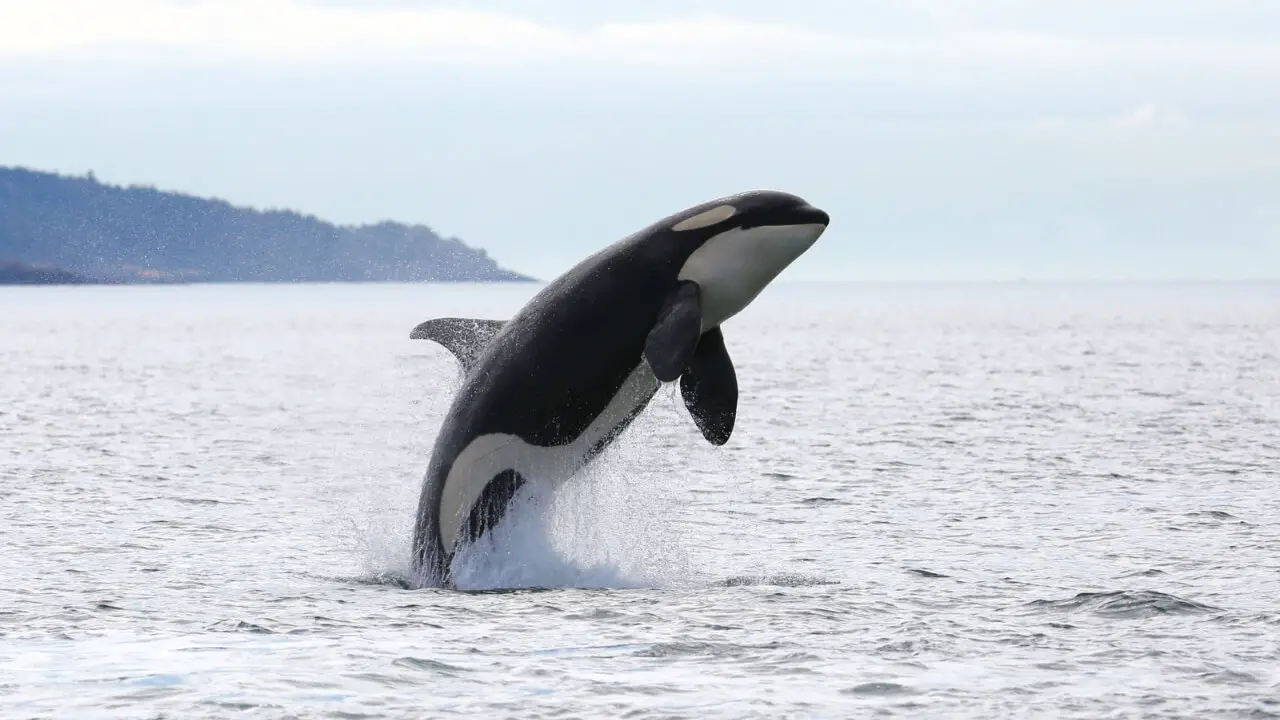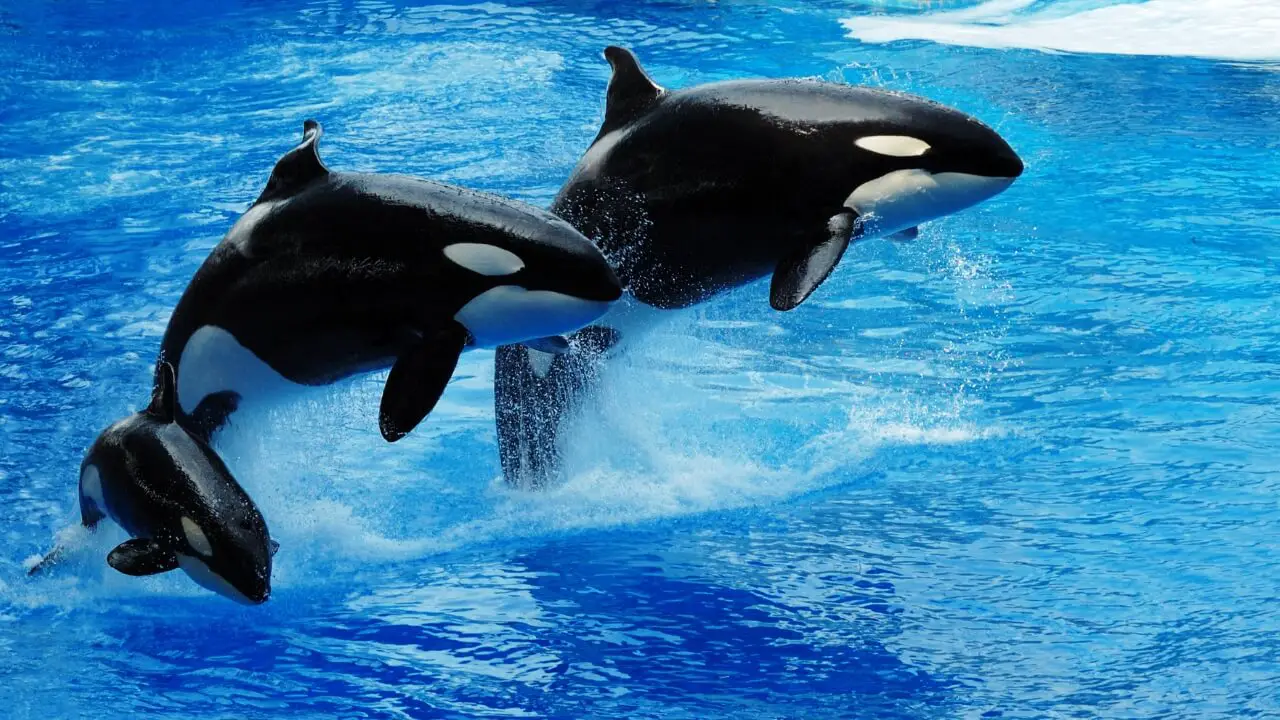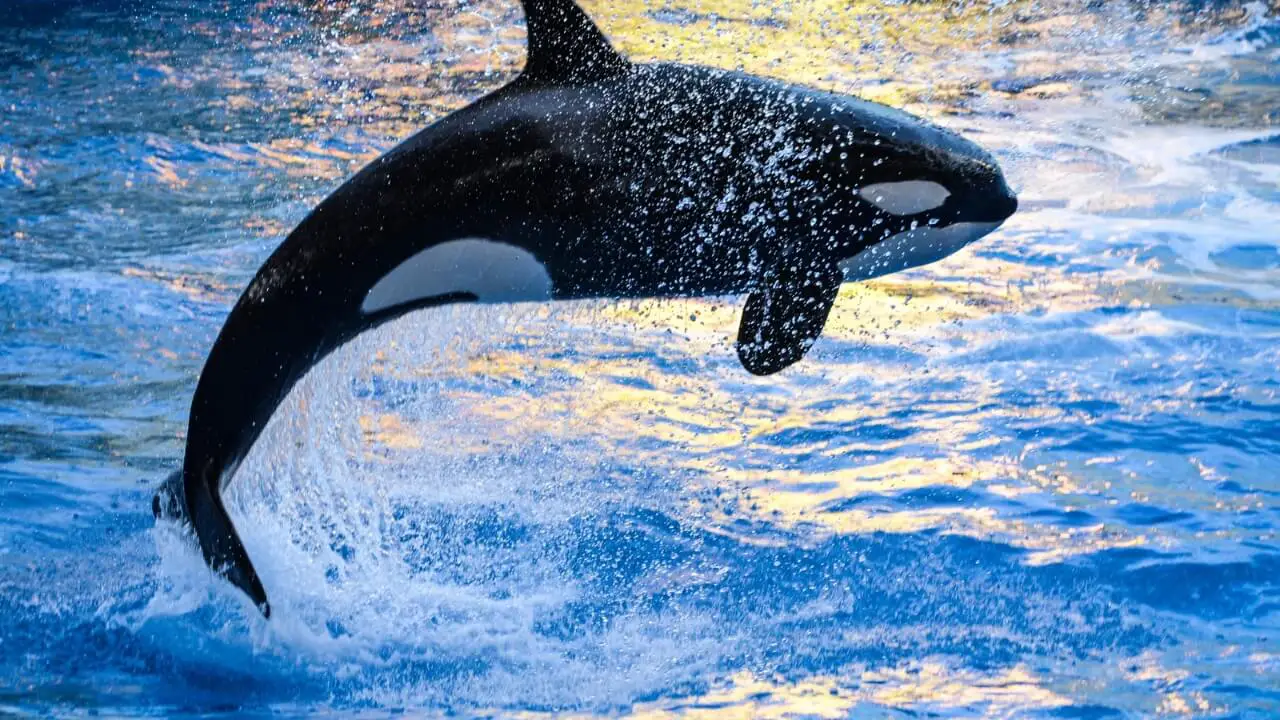The killer whale or orca is a well-known species of oceanic dolphin family. It is found in all oceans of the world. It is the top or apex predator of the marine habitat, which means it has no natural predators. However, large marine animals sometimes hunt and eat killer whales when they are too young, alone, or sick. Pods of killer whales are also known to hunt and eat rival killer whales that come from other regions. In this article, we gathered all information about the predators and animals that eat killer whales.
What Eats Killer Whales? – What Preys on Orcas?
Killer whales or orcas are the top or apex predators of the ocean, which means they have no natural predators. But sometimes, they also fall prey to other animals, especially the sick and young individuals. Large shark species (great white shark and tiger shark) and marine mammals like false killer whales and sperm whales sometimes prey on and eat alone individuals when they are away from their group. Pods of killer whales are also known to kill and eat rival killer whales that come from other regions. Polar bears and saltwater crocodiles are also known to hunt younger orcas when they stray too close to shore.
Despite being invulnerable creatures of the ocean, orcas or killer whales are still harmed and killed by other threats, such as parasites, diseases, pollution, and climate change. Many activities of humans also, intentionally or unintentionally, harm killer whales. For example; illegal hunting for meat, blubber, and research purposes directly reduces their population. Overfishing causes a reduction of their food sources and makes their survival difficult because of food scarcity. Habitat destruction and noise pollution disturb their echolocation, social interaction, and reproduction. Global warming and climate change cause direct harm to their health and survival.
What Animal Eats Killer Whales?
Killer whales or orcas exist on the top of the food chain and have no natural predators. However, the young, sick, and alone individuals are vulnerable and sometimes fall victim to other animals, such as false killer whales, sperm whales, great white sharks, tiger sharks, and polar bears. Besides these animals, humans also hunt killer whales for their meat and blubber.
What are the natural predators of Killer Whales?
Killer whales are themself the top predators of the oceans, which means they have no natural predators. But sometimes adult killer whales fall prey to other animals, especially when they are sick and alone. For example:
- Great white sharks have been known to kill and eat a killer whale when it is sick, too young, or far away from its pod.
- Large species of sharks like tiger sharks, bull sharks, and oceanic whitetip sharks are also known to attack and kill the younger and sick individuals of killer whales.
- Saltwater crocodiles and polar bears are known to hunt and eat younger killer whales in some regions, especially when they stray from their pods and come too close to the shore.
- Killer whales: killer whales sometimes show cannibalism and are known to attack and kill adult individuals that come from different ecotypes and rival pods.

Predators of Killer Whale Calves
The killer whale calves are vulnerable and have many predators. Their major predators are sharks and adult killer whales of other pods. Large shark species (great white sharks and tiger sharks) and false killer whales hunt killer whale calves. Pods of killer whales from other regions that have different social structures and predation rules are known to hunt calves and even adults. Sometimes, polar bears and saltwater crocodiles also hunt and eat killer whale calves when they drift away from their pods and come too close to the shore.





